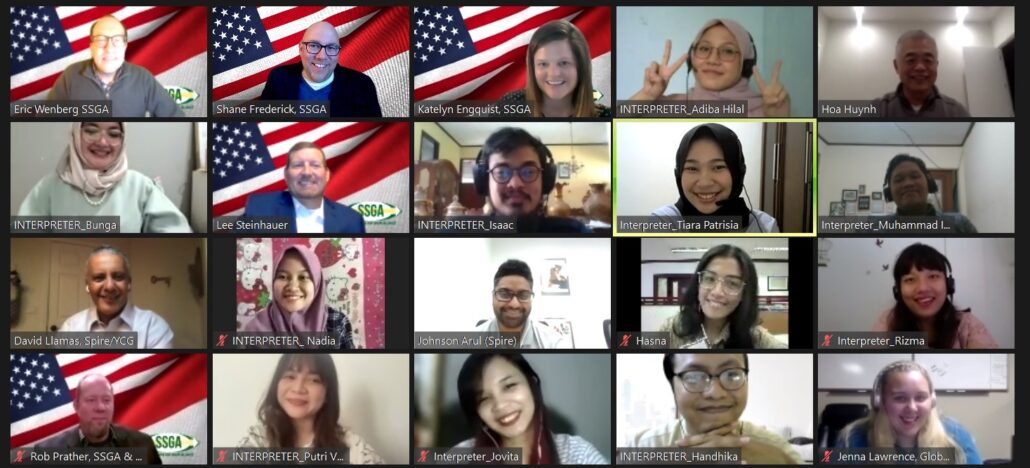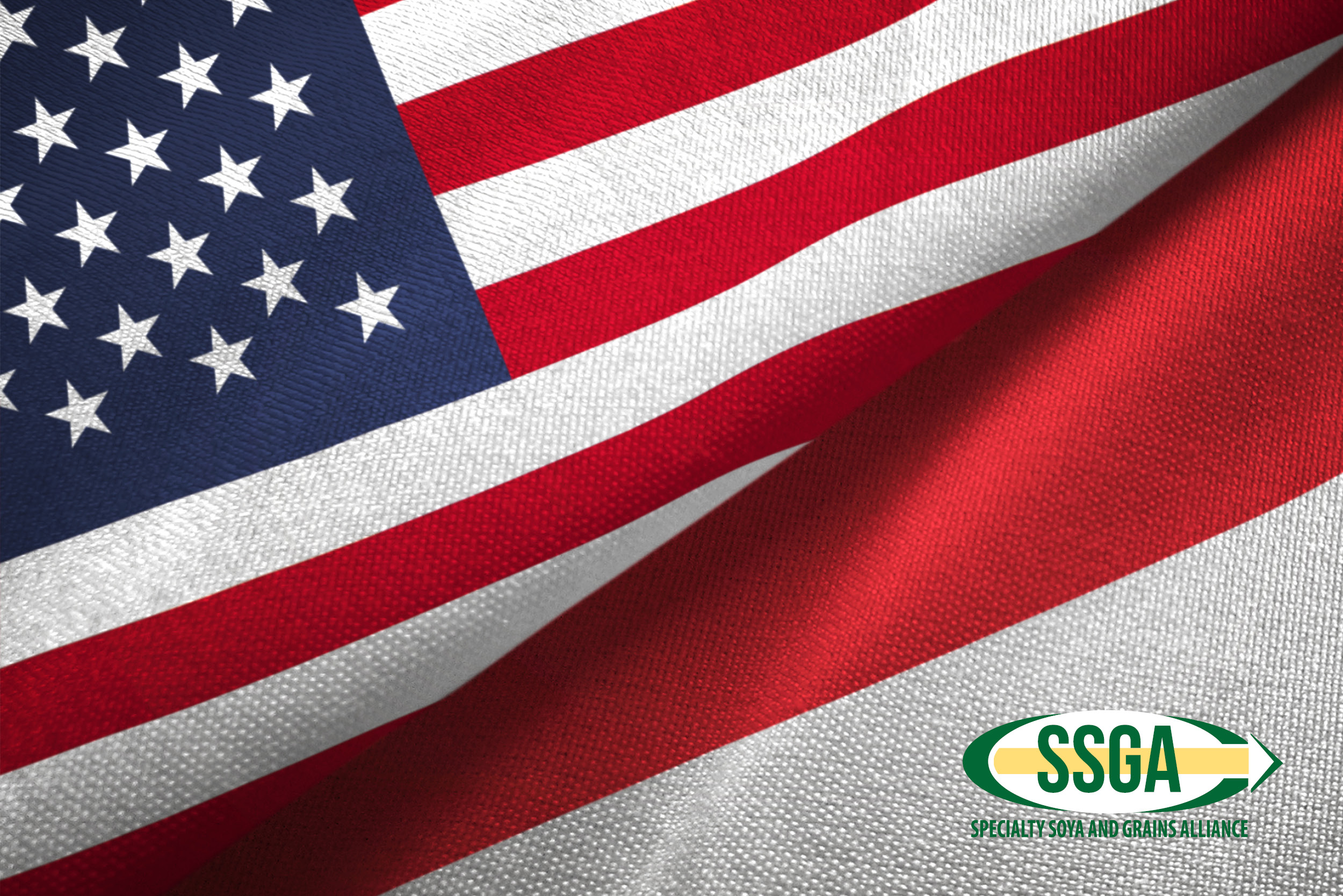From temperate to tropical, ‘IP B2B’ connects U.S. IP exporters to Indonesia
By Shane Frederick, SSGA Communications Manager
There is an excellent opportunity in Indonesia for exporters of U.S. Identity Preserved soya and specialty grains, said Chris Rittgers, agriculture counselor for the USDA Foreign Agriculture Service in Jakarta, as he helped kick off the Specialty Soya and Grains Alliance’s second IP virtual seminar and “IP B2B” event of the year.

SSGA and Spire staff and others expressed their gratitude to a group of fun, enthusiastic interpreters who helped U.S. exporters and Indonesian buyers overcome any language or communications barriers during SSGA’s IP B2B event on April 19-20.
“Our job here at the U.S. embassy – and, in fact, the fundamental job of all FAS officers overseas – is to link up U.S. suppliers with buyers in the local markets. And this is exactly the type of activity we like to see, where we get the opportunity for buyers and suppliers to communicate, exchange ideas and talk about mutual interests and needs.”
As it did in the Philippines in February, the two-day Indonesia event, held April 19-20, included several one-on-one video meetings between U.S. suppliers and foreign buyers, including food manufacturers, who were matched up based on their company profiles. The virtual seminar featured several presentations related to U.S. field crops.
Rittgers pointed out that the Indonesian market is relatively open for soybeans and most specialty grains. Indonesia, he said, is also the No. 1 market in the world for U.S.-grown millet, with exports totaling $23 million last year. Much of that is used as feed for Indonesia’s burgeoning songbird industry.
The bilateral trade relationship between the United States and Indonesia is “very strong and very healthy,” Rittgers said, adding that ag and ag-related trade between the two countries totaled $8 billion in 2020. That includes $3 billion in products from the temperate climate of the U.S. (soybeans, wheat, cotton, dairy, meet, animal protein, feed ingredients, for example) and $8 billion from Indonesia’s tropical climate (home oil, rubber, cocoa, spices, coffee).
“It’s a mutually beneficial relationship,” Rittgers said, “with each of us capitalizing on our comparative advantages.”
Garrett McDonald, agricultural attaché for FAS Jakarta, backed that up in his presentation the next day, stressing that Indonesia is the United States’ 10th-largest ag export market but also that Indonesia – the fourth-largest country in the world by population – imports more ag products from the U.S. than from any other country.
“The U.S. supply of raw materials feeds into Indonesia’s growing retail food and beverage sector,” McDonald said, adding that there is increasing interest in healthier foods and a high demand for lifestyle products with nutritional benefits.
Thirty percent of Indonesian ag imports from the U.S. are soybeans, and most of those are made into food for human consumption, such as tempeh and tofu, meaning the Southeast Asian nation, which is made up of more than 17,000 islands, is a vital market for U.S. Identity Preserved field crops.
“We are thrilled to play a part,” McDonald said.
Including representatives from U.S. processors and Indonesian companies, staff from SSGA and Spire Research and Consulting and an intrepid group of interpreters, the event brought together on Zoom around 70 people on the first day and 60 the next.
“Despite the 12-hour time difference for many of our participants, we were able to have lively discussions and successfully introduce our producers and processors to buyers from an important, growing market for U.S. Identity Preserved products,” said Eric Wenberg, SSGA executive director. “Using interpreters, when needed, the companies met face to face in virtual breakout rooms to begin doing business. We also had fun comparting temperatures and cultures on the call!”
Other presenters included Rob Prather, SSGA vice-chair and chief strategic ambassador for Global Processing, who spoke about buying IP field crops; Will McNair, USSEC director for human nutrition and oil on U.S. Soy sustainability initiatives; Manuel Sanchez, U.S. Grains Council regional director for Southeast Asia and Oceania on 2020 and 2021 corn quality; Brian Sorenson, program director Northern Crops Institute on NCI’s educational courses, including a food grade and IP practices class that SSGA is participating in June 13-15; and Raquel Hansen, Minnesota IP farmer and SSGA board member on IP being the “value that adds value.”
“We look forward to one day traveling with our members to Indonesia for in-person meetings, but we’ve learned how to make virtual work better in the meantime,” Wenberg said. “Educating buyers and sellers in advance and setting meetings in advance worked well. The companies loved it and reported to me it was valuable to their business.”
SSGA has scheduled similar virtual seminars and IP B2B meetings for Vietnam (May 24-25), Thailand (June 14-15) and Malaysia (June 28-29) and is planning another for China to be held on a later date.







Leave a Reply
Want to join the discussion?Feel free to contribute!